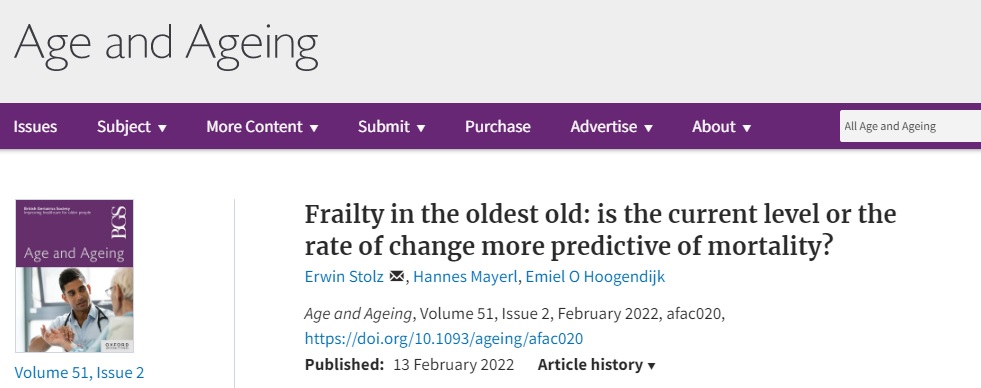Recently, we have published an article in Age and Ageing on frailty trajectories among the oldest old. In particular, the study investigated wheter frailty change is a better predictor of mortality than measuring frailty only once, using more intensive data (five assessments with 9-month intervals) and a more advanced statistical method (joint models for longitudinal and time-to-event data) than previous studies to answer this research question.
For this study, we used data from the Longitudinal Aging Study Amsterdam 75-PLUS-study of 508 older adults (75+) who provided five 9-monthly measurements between 2016 and 2019. We found the rate of FI change more important than the current FI level for short-term mortality prediction among the oldest old. Therefore, regular frailty assessment seems to be important. This study was conducted by Dr. Erwin Stolz (Medical University Graz, Austria). See the publication for more information.

